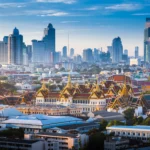Culture, the fabric of society woven through traditions, beliefs, and customs, plays a profound role in shaping our identities and experiences. Comprised of various elements, culture influences every aspect of our lives, from the way we communicate to our values and worldview. Let’s explore the elements of culture and how they intricately shape our existence.
1. Language: The Key to Communication and Identity
Language serves as a cornerstone of culture, embodying the collective wisdom, history, and identity of a community. Beyond mere communication, language reflects societal norms, values, and traditions, shaping our worldview and interpersonal relationships. It serves as a bridge that connects individuals to their cultural heritage and fosters a sense of belonging.
2. Symbols and Rituals: Expressions of Belief and Tradition
Symbols and rituals are tangible manifestations of culture, carrying deep meanings and significance. Whether in the form of flags, religious icons, or ceremonial practices, they serve to reinforce cultural identity, foster cohesion, and transmit values from one generation to the next. These symbols and rituals imbue our lives with a sense of continuity and belonging, anchoring us to our cultural roots.
3. Social Norms and Customs: Guidelines for Behavior
Social norms and customs dictate acceptable behavior within a society, providing a framework for interaction and social cohesion. From etiquette and manners to gender roles and familial expectations, these norms shape our conduct and influence our relationships. They serve as cultural signposts, guiding individuals in navigating social dynamics and fostering harmony within the community.
4. Arts and Expression: Reflections of Creativity and Identity
Arts and expression encompass a wide range of creative endeavors, including music, literature, visual arts, and performing arts. These forms of expression serve as outlets for cultural narratives, beliefs, and emotions, reflecting the unique perspectives and experiences of a society. Through art, individuals explore and celebrate their cultural heritage, fostering creativity and preserving traditions for future generations.
5. Cuisine and Culinary Traditions: The Taste of Culture
Cuisine and culinary traditions offer a sensory journey into the heart of a culture, reflecting its history, geography, and values. From traditional recipes passed down through generations to regional specialties, food serves as a powerful expression of cultural identity. Sharing meals becomes a communal experience, fostering connections and reinforcing social bonds.
6. Religion and Spirituality: Sources of Belief and Meaning
Religion and spirituality shape beliefs, values, and moral codes, influencing individual and collective behavior. Whether through organized religion or personal spiritual practices, these aspects of culture provide frameworks for understanding the universe, grappling with existential questions, and finding meaning in life. They serve as guiding forces that shape our ethical principles and worldview.
7. Technology and Innovation: Agents of Cultural Evolution
In the modern age, technology and innovation play an increasingly significant role in shaping culture. From communication tools to advancements in transportation and entertainment, technology influences how we interact, work, and experience the world. It facilitates cultural exchange, fosters global connections, and drives societal change, shaping the way we live and interact with one another.
How Culture Shapes Our Lives
Culture permeates every aspect of our existence, influencing our perceptions, beliefs, and behaviors. It provides a framework for understanding the world around us, shaping our identities, and guiding our interactions with others. From the language we speak to the food we eat, culture infuses richness and meaning into our lives, connecting us to our past, grounding us in the present, and shaping the possibilities of our future.
Conclusion
The elements of culture form the tapestry of human experience, weaving together traditions, beliefs, and customs that define who we are and how we relate to the world. Understanding these elements allows us to appreciate the diversity of human expression, foster cross-cultural understanding, and navigate the complexities of our interconnected global society.
FAQs
- How does language influence culture?
- Language serves as a key aspect of culture, reflecting societal norms, values, and traditions, and shaping our worldview and interpersonal relationships.
- What role do social norms and customs play in culture?
- Social norms and customs provide guidelines for behavior within a society, fostering social cohesion and guiding interactions among individuals.
- Why is cuisine considered a significant aspect of culture?
- Cuisine and culinary traditions offer insights into a culture’s history, geography, and values, serving as a powerful expression of cultural identity and fostering social connections through shared meals.
- How does religion shape culture?
- Religion influences beliefs, values, and moral codes, providing frameworks for understanding the universe and finding meaning in life, thus shaping cultural identities and guiding societal behavior.







